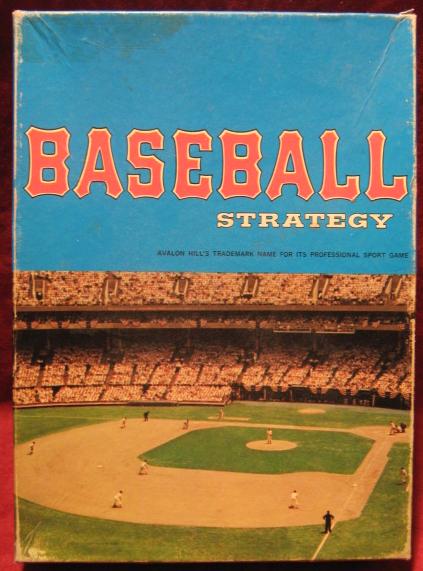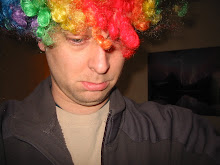Sunday, October 30, 2011
Image from Holmes
Not that Holmes - the new Sherlock Holmes movie. I won't go and see it (haven't been to a movie theater in years) but this still from the official preview caught my eye. Nice looking fortress... Must be a bitch to shovel out though. I especially like the utterly useless battlements facing out over the valley. Or maybe they're there for protection against archers on griffins or pegasuses?
Labels:
Art,
Everything Else
Monday, October 24, 2011
The Parade of Ghosts
An annual parade held in the town of Beynac is both a celebration of the changing of seasons and a macabre spectacle of local justice being meted out. “The Parade of Ghosts” begins at nightfall on the same Autumn day every year. Prisoners from the dungeons of Lord Aubry are bound in shackles and covered in white sheets, then marched up and down the avenues for an hour or so at sword point until finally ending up at the central square and gallows tree.
All landowning citizens are required to enter a lottery, the winner of which must point at a “ghost” of his or her choosing. The unlucky prisoner is then drowned in a barrel, hanged with the sheet still covering them, and left to swing until morning when they are brought down and their identity revealed.
Serious criminals are not the only ones subject to this fate - anyone currently imprisoned at the time of the parade is forced to participate. It’s thought to be an effective deterrent, coming at a time when the poorest residents become increasingly likely to take desperate measures due to the approach of colder weather.
The only downside that the Constable and other authorities have noted is the amount of superstitions being spread associated with the ancient oak tree where the criminals meet their end. While most residents worship the goddess Suthak, Lord Aubry still follows the older druidic ways and will not tolerate discussion of the tree’s removal. In addition to this, though the tradition of the Parade is enjoyed by most townsfolk, some lottery winners claim to be haunted by their pick - with at least one having committed suicide as a result.
All landowning citizens are required to enter a lottery, the winner of which must point at a “ghost” of his or her choosing. The unlucky prisoner is then drowned in a barrel, hanged with the sheet still covering them, and left to swing until morning when they are brought down and their identity revealed.
Serious criminals are not the only ones subject to this fate - anyone currently imprisoned at the time of the parade is forced to participate. It’s thought to be an effective deterrent, coming at a time when the poorest residents become increasingly likely to take desperate measures due to the approach of colder weather.
The only downside that the Constable and other authorities have noted is the amount of superstitions being spread associated with the ancient oak tree where the criminals meet their end. While most residents worship the goddess Suthak, Lord Aubry still follows the older druidic ways and will not tolerate discussion of the tree’s removal. In addition to this, though the tradition of the Parade is enjoyed by most townsfolk, some lottery winners claim to be haunted by their pick - with at least one having committed suicide as a result.
Labels:
Dordogne
Monday, October 17, 2011
Sunday, October 16, 2011
Saturday, October 15, 2011
Baseball, Board Games, and D&D
Right around the same time I was getting into role playing games, my older cousin was getting into Strat-O-Matic. Basically, you roll d6’s and consult player cards for the result of the at-bat. There are rules variants depending on how complex you want it to be, and of course you can play solitaire. To get a sense of it, you can try out a flash version of an at-bat here (just click the green circle to get started quickly).
I haven’t really played the game in decades - I’d like to, but don’t have a copy - probably it's only something hardcore fans would be interested in playing… or maybe gamblers. The prediction accuracy is excellent, allegedly having a batting average variance of only .015% (.007% for homerun average). Of course, that would be for last season, so its value for the current one is arguable.

Strat-O-Matic has its competitors, the most popular of which might be APBA. Avalon Hill also produced baseball board games. Way back in ’62 they came out with Baseball Strategy. It uses “Fast Action” cards instead of dice to randomly determine outcomes. I recently picked up a much later version that AH released in 1980. Here are some scans if anyone's curious.
I’ve been been tossing around some of my own ideas for a baseball board game - admittedly much less simulation and much more gonzo. It’s a mash up of D&D and basic baseball rules, something I call Goblinball. I first began thinking about it when I attempted to improvise a game during one of our regular S&W sessions. That didn’t quite go the way I’d expected when the party brazenly attacked the hitter and catcher and all hell broke loose from both bullpens. I'd expected that to eventually happen, but hoped there’d be some bets and baseball drama first (bad calls, taunting, hit by pitches, etc.)
What’s interesting to me about the process of trying to hack them together is realizing how much they already remind me of one another. There’s the battle between pitcher and hitter, with each side “rolling” to see if they succeed against the other. There’s the saving throw of the defensive players who must catch the ball or tag the runner out, or perhaps dexterity checks on either side to accomplish their aims (or skills if you must).
The flow of a baseball game reminds me of D&D. A typical game can last hours, and occasionally goes longer than anyone expected (without a set end time). The storytelling is something like each person briefly becoming a radio broadcaster and relaying the game action. The DM is both pitcher and umpire, throwing the group various curveballs. I like how everyone has their own moment to shine when at bat; each individual describes his character’s action and makes a combat or other type of roll. When the party is in the field, they’re shouting defensive information and advice.
Describing and simulating actions in baseball and D&D also seem similar because of the limits of the field of play itself. In baseball, you can’t stray from the running lane and must move through the bases to score. It’s exactly this structure that makes the game easier to simulate. We don’t need to explain how the player goes to first, the player just indicates what his move is and we both make assumptions. He doesn’t have to describe every step - we both understand that there’s only one place to go and that the critical move was made a moment ago. The pitch and bat swing is analogous to the “What does your character do?” and “I do this.” exchange. In other words, it’s a linear, storytelling game.
Compare this for example to soccer (another game I enjoy)… Imagine describing the action in detail here. Sure it can be done, but it's painful: number 14 receives the ball, she dribbles 10 feet west, turns 30 degrees and moves a few feet forward, now back 4 feet, etc. The playing field is literally a field, whereas the baseball field is a field of probability and a track.
Hmmm, maybe I’m not describing that quite right. How about this: the randomness and uncertainty of a soccer ball or player’s location at any given moment is much higher than what can similarly be found in baseball. It’s this greater certainty principle in baseball that allows us to better design tools to simulate and measure the actions that happen there. D&D is a more linear game, based on the nature of back and forth discourse that moves the action forward. We aren’t all moving forward together in that field, we’re generally waiting for one described action to inform the next.
Just some pre-beer/game thoughts - in closing: Go Tigers!
Update: Facepalm.
I haven’t really played the game in decades - I’d like to, but don’t have a copy - probably it's only something hardcore fans would be interested in playing… or maybe gamblers. The prediction accuracy is excellent, allegedly having a batting average variance of only .015% (.007% for homerun average). Of course, that would be for last season, so its value for the current one is arguable.
Strat-O-Matic has its competitors, the most popular of which might be APBA. Avalon Hill also produced baseball board games. Way back in ’62 they came out with Baseball Strategy. It uses “Fast Action” cards instead of dice to randomly determine outcomes. I recently picked up a much later version that AH released in 1980. Here are some scans if anyone's curious.
I’ve been been tossing around some of my own ideas for a baseball board game - admittedly much less simulation and much more gonzo. It’s a mash up of D&D and basic baseball rules, something I call Goblinball. I first began thinking about it when I attempted to improvise a game during one of our regular S&W sessions. That didn’t quite go the way I’d expected when the party brazenly attacked the hitter and catcher and all hell broke loose from both bullpens. I'd expected that to eventually happen, but hoped there’d be some bets and baseball drama first (bad calls, taunting, hit by pitches, etc.)
What’s interesting to me about the process of trying to hack them together is realizing how much they already remind me of one another. There’s the battle between pitcher and hitter, with each side “rolling” to see if they succeed against the other. There’s the saving throw of the defensive players who must catch the ball or tag the runner out, or perhaps dexterity checks on either side to accomplish their aims (or skills if you must).
The flow of a baseball game reminds me of D&D. A typical game can last hours, and occasionally goes longer than anyone expected (without a set end time). The storytelling is something like each person briefly becoming a radio broadcaster and relaying the game action. The DM is both pitcher and umpire, throwing the group various curveballs. I like how everyone has their own moment to shine when at bat; each individual describes his character’s action and makes a combat or other type of roll. When the party is in the field, they’re shouting defensive information and advice.
Describing and simulating actions in baseball and D&D also seem similar because of the limits of the field of play itself. In baseball, you can’t stray from the running lane and must move through the bases to score. It’s exactly this structure that makes the game easier to simulate. We don’t need to explain how the player goes to first, the player just indicates what his move is and we both make assumptions. He doesn’t have to describe every step - we both understand that there’s only one place to go and that the critical move was made a moment ago. The pitch and bat swing is analogous to the “What does your character do?” and “I do this.” exchange. In other words, it’s a linear, storytelling game.
Compare this for example to soccer (another game I enjoy)… Imagine describing the action in detail here. Sure it can be done, but it's painful: number 14 receives the ball, she dribbles 10 feet west, turns 30 degrees and moves a few feet forward, now back 4 feet, etc. The playing field is literally a field, whereas the baseball field is a field of probability and a track.
Hmmm, maybe I’m not describing that quite right. How about this: the randomness and uncertainty of a soccer ball or player’s location at any given moment is much higher than what can similarly be found in baseball. It’s this greater certainty principle in baseball that allows us to better design tools to simulate and measure the actions that happen there. D&D is a more linear game, based on the nature of back and forth discourse that moves the action forward. We aren’t all moving forward together in that field, we’re generally waiting for one described action to inform the next.
Just some pre-beer/game thoughts - in closing: Go Tigers!
Update: Facepalm.
Labels:
Other Games/Genres,
Theory/Design
Saturday, October 8, 2011
Pigeon Towers
I thought of these today when I was reading through Matt Finch’s new book, the Tome of Adventure Design. There’s a great table entitled “The Bill of Fare” and I got to drooling over some of the menu items listed. Pigeon Pie…mmm. (If you’ve never had squab you’re missing out on some really good stuff, but if you ever try it and it’s not practically bleeding on the plate, send it back!)
It’s funny, but that table inspired adventure design ideas that have nothing to do with tavern fare. Pigeon towers? What about stirge towers? Here’s a bunch more… Maybe all those cubicles had haunted urns in them...
Below is a modern pigeon tower in England, built in 1910. I like the idea of rooms above the pigeon chambers… obviously where the wizard works.
 One in Toulouse.
One in Toulouse.
One blasted apart by magic.
 So the next time you map out that town or village, don’t forget to drop a pigeon tower or two in there.
So the next time you map out that town or village, don’t forget to drop a pigeon tower or two in there.
It’s funny, but that table inspired adventure design ideas that have nothing to do with tavern fare. Pigeon towers? What about stirge towers? Here’s a bunch more… Maybe all those cubicles had haunted urns in them...
Below is a modern pigeon tower in England, built in 1910. I like the idea of rooms above the pigeon chambers… obviously where the wizard works.
 One in Toulouse.
One in Toulouse.One blasted apart by magic.
A tower for those on a budget...
 So the next time you map out that town or village, don’t forget to drop a pigeon tower or two in there.
So the next time you map out that town or village, don’t forget to drop a pigeon tower or two in there.
Labels:
Everything Else
Friday, October 7, 2011
This Trampier piece always seems washed out in print and online...
I bet the original version was something more like this: Just saying. I mean, it seems like the internet record of it should better reflect the original artwork than most untouched scans of the 1977 book. No? (A more typical representation for example. Eesh!) Just a pet peeve I guess.
Just saying. I mean, it seems like the internet record of it should better reflect the original artwork than most untouched scans of the 1977 book. No? (A more typical representation for example. Eesh!) Just a pet peeve I guess.
 Just saying. I mean, it seems like the internet record of it should better reflect the original artwork than most untouched scans of the 1977 book. No? (A more typical representation for example. Eesh!) Just a pet peeve I guess.
Just saying. I mean, it seems like the internet record of it should better reflect the original artwork than most untouched scans of the 1977 book. No? (A more typical representation for example. Eesh!) Just a pet peeve I guess.
Labels:
Art,
Early Editions
Thursday, October 6, 2011
Fiery Dragon Makes a Fine Tunnels & Trolls Box
 I’d been wanting to buy a copy of Tunnels and Trolls to replace my battered, second hand store one, so last month I visited Flying Buffalo’s website to see what I could find. Being a total T&T newb, I found the T&T product page a bit confusing. Apparently I have version 5, there never was an official version 6, there was a version 7, and there’s a version 7.5 which I think is just a re-box of 7.
I’d been wanting to buy a copy of Tunnels and Trolls to replace my battered, second hand store one, so last month I visited Flying Buffalo’s website to see what I could find. Being a total T&T newb, I found the T&T product page a bit confusing. Apparently I have version 5, there never was an official version 6, there was a version 7, and there’s a version 7.5 which I think is just a re-box of 7.I ended up getting the Fiery Dragon produced 7.5 box. I’ve heard that a few oddities in the 5th edition rules were cleaned up and that it’s fundamentally the same game (unlike say the changes between D&D 2e and 3.5). For what it's worth, about 80% of poll respondents here indicated that they preferred or played 5 vs. 7.5.
The boxes were on back order and I was lucky to get mine for $35+$3 for shipping. The price has since gone up to $50 but I’m amazed at the quality of what you get even at that new price.
The smallness of the box and books themselves is not for everyone - personally, I love it. The main books are all spiral bound and lay flat, with the rules being slightly smaller (4.75 x 7”) than the monster and spells books (5 x 7.75” each). With these are included three booklets - two adventures and a monster/magic expansion. There's also monster and PC cardboard tokens which are sturdy and use very professional art. The dice are small (I’ve already lost one) and four PC record sheets were included.
Flying Buffalo’s website is very Web 1.0 and DIY, looking pretty much like it did when it first went online about 15 years ago. It has a certain old school charm, but there’s a lot of stuff there and it could really use a make over to show off some of their products better. Below are some photos of the T&T 7.5 box I received in case anyone goes there and wants a better idea of what they might be ordering…
Box Back • Rules Book (next to MM for scale) • Map • Spells Book • Monster Book • Monster & Magic Expansion • Dice (next to a Gamescience d6 for scale) • Tokens • PC Sheets • Solo Adventure • GM Adventure (forgot to take a pic!)
Labels:
Other Games/Genres
Saturday, October 1, 2011
The Return of the Giant Hogweed
 The half-animal/half-plant creature known as the hogweed resembles a large ornamental shrub that’s been trimmed to look something like the farm animal from which it gets its name. What makes the creature even more remarkable is that it uproots itself when physically disturbed or closely approached during the daytime. When this happens, the hogweed will blindly run about in circles for ten minutes or so before settling down again and re-rooting itself, usually bumping into and setting off the others around it in the process.
The half-animal/half-plant creature known as the hogweed resembles a large ornamental shrub that’s been trimmed to look something like the farm animal from which it gets its name. What makes the creature even more remarkable is that it uproots itself when physically disturbed or closely approached during the daytime. When this happens, the hogweed will blindly run about in circles for ten minutes or so before settling down again and re-rooting itself, usually bumping into and setting off the others around it in the process.The hogweed’s leaves and flowers produce a poisonous oil whose effects are activated by natural light and which can last for several years, causing severe burns to the skin of those who come into contact with it, as well as blindness if transferred to the eyes. Those exposed at night often don't know they’ve come into contact with the oil until sunrise, when the light activated oils begin to burn.
In the Dordogne river valley, the creatures grow in densely packed groups of up to a hundred or so, where collectively they appear as normal shrubbery. About once every seven years though, a Giant Hogweed will grow from the seeds of its smaller relatives. These larger specimens can reach heights of up to fifteen feet tall, are far more sensitive to nearby disturbance, and have a rudimentary intelligence and sense of direction.
Hogweeds are not native to the region and have been eradicated from the populated areas of the valley, but still crop up from time to time in more rural places. Foreign travelers hoping to avoid bridge tolls along the Dordogne often encounter hogweeds by seeking out their own crossing points. Petitions to nobles on both sides of the river to stamp them out are not infrequent, yet never seem to result in full extermination. Rumor has it that the ongoing enmity between the north and south is in some way to blame; there’s no doubt that the existence of hogweeds along the border are a useful (if minor) deterrent against enemy incursion.
Hogweed: No. Appearing: d100, HD <1, AC 8[11]; Atk 1 trample (0-1 hp + Special); Move 15; Save 18; CL/XP B/10
Giant Hogweed: No. Appearing: Up to 1 (% chance = number of hogweeds appearing), HD 5; AC 6[13]; Atk 1 trample (2d6 + Special); Move 12; Save 12; CL/XP 5/240
Special: Both giant and normal sized hogweeds attack by attempting to trample their victims and transferring their contact poison. Smaller hogweeds are easily fled from, but giant hogweeds will pursue targets as far as a hundred yards from their smaller hogweed companions. Fire attacks against them are at +4 to hit and +1 damage but if they’re set ablaze, attackers within 20’ (60’ for giant hogweeds) must save vs. poison (gas) or suffer d6 damage per day until cured.
Poison: Contact causes d6 hp of damage per day in a victim if the body part(s) affected is exposed to natural light (roll to see what part of the body was hit - the oil also will penetrate clothing in one day if not washed). Cure disease will remove this affliction. Head or face contact may require a saving roll against blindness.
Sites where hogweeds are disturbed are prone to large population blooms due to their seeds being shed and distributed in the process of their running about. When safely handled they can fetch a good price on the black-market.
Subscribe to:
Comments (Atom)










